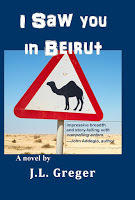Science in Fiction by J.L. Greger
Is realistic science a necessary part of modern fiction?The answer depends on the genre.
 Mystery writers for the last hundred years, consider Agatha Christie and Arthur Conan Doyle, have included bits of chemistry (i.e., poisons) and medical terms in their novels. Modern TV audiences, and presumably readers, expect crime fiction and mysteries to include scenes in laboratories and characters (lab technicians, scientists, and physicians) who spout lab jargon. Skeptics often argue the lab scenes aren’t realistic because real labs can’t provide answers as quickly and completely as shown on TV, and most scientists don’t wear designer clothes. (I don’t want to get into that argument now.) The bottom line: Mysteries and crime novels need a semblance of science.
Mystery writers for the last hundred years, consider Agatha Christie and Arthur Conan Doyle, have included bits of chemistry (i.e., poisons) and medical terms in their novels. Modern TV audiences, and presumably readers, expect crime fiction and mysteries to include scenes in laboratories and characters (lab technicians, scientists, and physicians) who spout lab jargon. Skeptics often argue the lab scenes aren’t realistic because real labs can’t provide answers as quickly and completely as shown on TV, and most scientists don’t wear designer clothes. (I don’t want to get into that argument now.) The bottom line: Mysteries and crime novels need a semblance of science.Those who write romances and literary fiction shouldn’t assume they’re off the hook. The writers of Downton Abbey used the influenza epidemic of 1919 was a convenient way to eliminate Lady Mary’s romantic rival. The bottom line: bits of science add spice and realism to any fiction.
How can authors add science to their fiction?Let’s put this bluntly: How do non-scientist (who don’t particularly like science) add scientific details to their writing?
1. Don’t add so many details that you slow the plot.
2. Avoid scientific and medical jargon, unless you’re trying to show a character is snobbish. For example, a beat cop’s description of a wound could include fewer medical terms and be more colorful than the pathologist’s report on the same wound.
 3. Select sources of information carefully. Most journals are too technical. However, the journal Science provides layman’s summaries of many articles. NIH (National Institutes of Health) maintains a very good and easy to use website. I also find Wikipedia and the science pages in major newspapers and news magazines (Time, Newsweek) supply accurate information and point out conflicting opinions fairly. Even a scientist has to be careful when using so called health newsletters and industry digests as sources of information because of inherent biases.
3. Select sources of information carefully. Most journals are too technical. However, the journal Science provides layman’s summaries of many articles. NIH (National Institutes of Health) maintains a very good and easy to use website. I also find Wikipedia and the science pages in major newspapers and news magazines (Time, Newsweek) supply accurate information and point out conflicting opinions fairly. Even a scientist has to be careful when using so called health newsletters and industry digests as sources of information because of inherent biases. 4. Use science tidbits you find interesting. For example, if you have a family history of breast cancer, you might have the heroine in your romance novel ask her physician about her chances of getting breast cancer.
Two practical ways to use science in your fictionYou candevelop characters by incorporating tidbits of science into their back story. I’ll use my writing as an example. Thousand of U.S. scientists (e.g., geologists, physicians, agronomists, nuclear engineers) helped in the “development” of Iran in the almost forty years after World War II. I knew members of the Shiraz Experiment—a medical team who identified zinc deficiency among peasants in Iran. The problem was of interest because two to thee percent of recruits for the Iranian military were being rejected then because of severe growth and physical development. The fictional Doc Steinhaus in I SawYou in Beirut was a graduate student research assistant in the Shiraz experiment and accordingly had a vast knowledge of arcane details about Iran.
You cancreate a plot that hinges on a current scientific controversy. Again I’ll give a personal example. Americans love new and easy diet regimes and pills. The methods by which these products are tested is often shrouded in mystery. In Murder:A New Way to Lose Weight , two diet doctors believe they can help obese subjects lose weight by altering their gut flora. (This is actually a hot and promising area of research.) Then one of the diet doctors is killed. Was it a disgruntled patient or a jealous colleague?
Now you’re ready to add color to your novels by sprinkling in bits of science.
J.L. Greger was a scientist and professor at the Purdue University, University of Wisconsin-Madison, and University of Connecticut for more than thirty years. She adds tidbits of science to her thrillers and mysteries and lives in the Southwest with Bug, her Japanese Chin.
 In
I SawYou in Beirut
, Sara Almquist is drawn into a plan to identify and rescue a nuclear scientist known only as F from Iran. After repeated attacks, she wonders whether her current friendship with Sanders, a secretive State Department official, not memories from her career as a globe-trotting epidemiologist, has put her in jeopardy.
In
I SawYou in Beirut
, Sara Almquist is drawn into a plan to identify and rescue a nuclear scientist known only as F from Iran. After repeated attacks, she wonders whether her current friendship with Sanders, a secretive State Department official, not memories from her career as a globe-trotting epidemiologist, has put her in jeopardy.Available in paperback and e-book (Kindle, Nook).
Published on February 17, 2016 04:00
No comments have been added yet.



